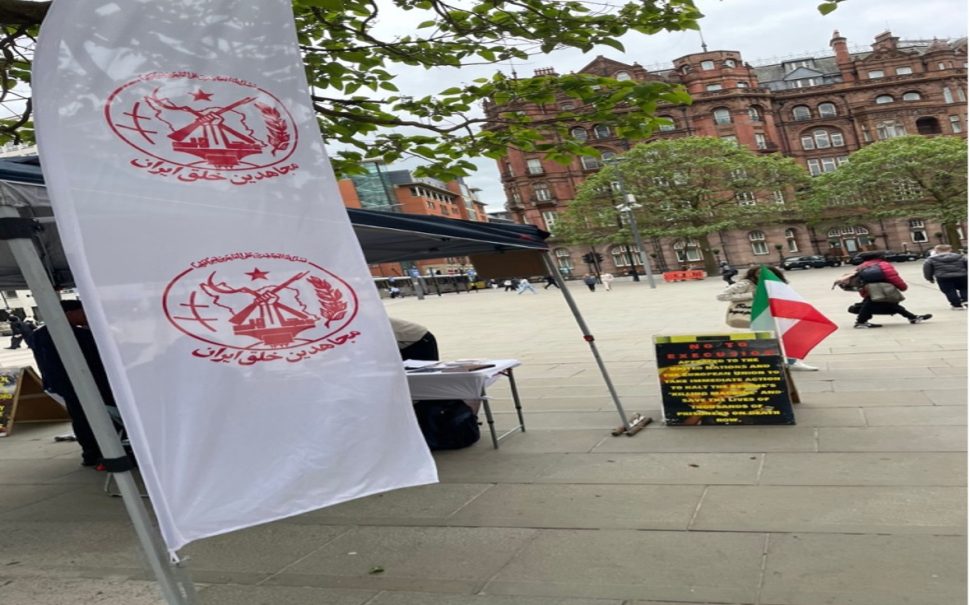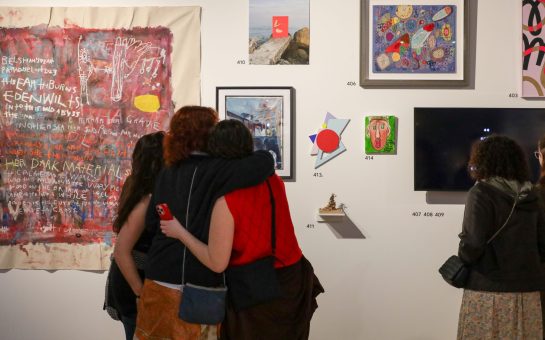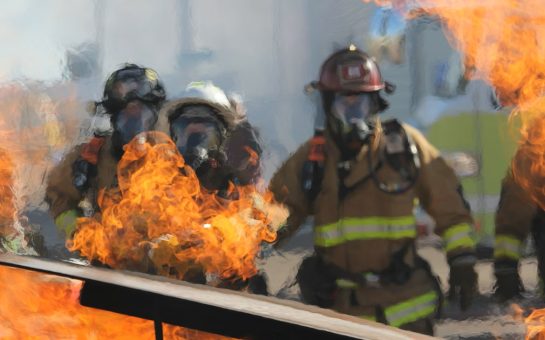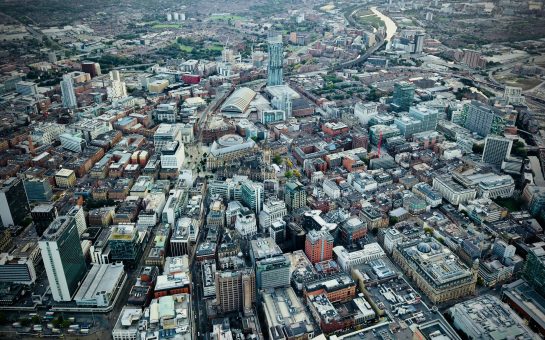A group campaigning against the Iranian regime raises a controversial opposition flag in St Peter’s Square every Thursday.
Academics in Exile tours towns and cities across the UK, collecting signatures, handing out leaflets and urging people to email MPs about Iran.
The group is not officially linked to the MEK but often displays its flag, and stallholders have voiced support for the organisation.
A man at the stall, who gave his name as Reza, said he supported the MEK and believed armed struggle was the only way to remove the Iranian regime. “The West doesn’t really want to see the Ayatollahs fall,” he said.
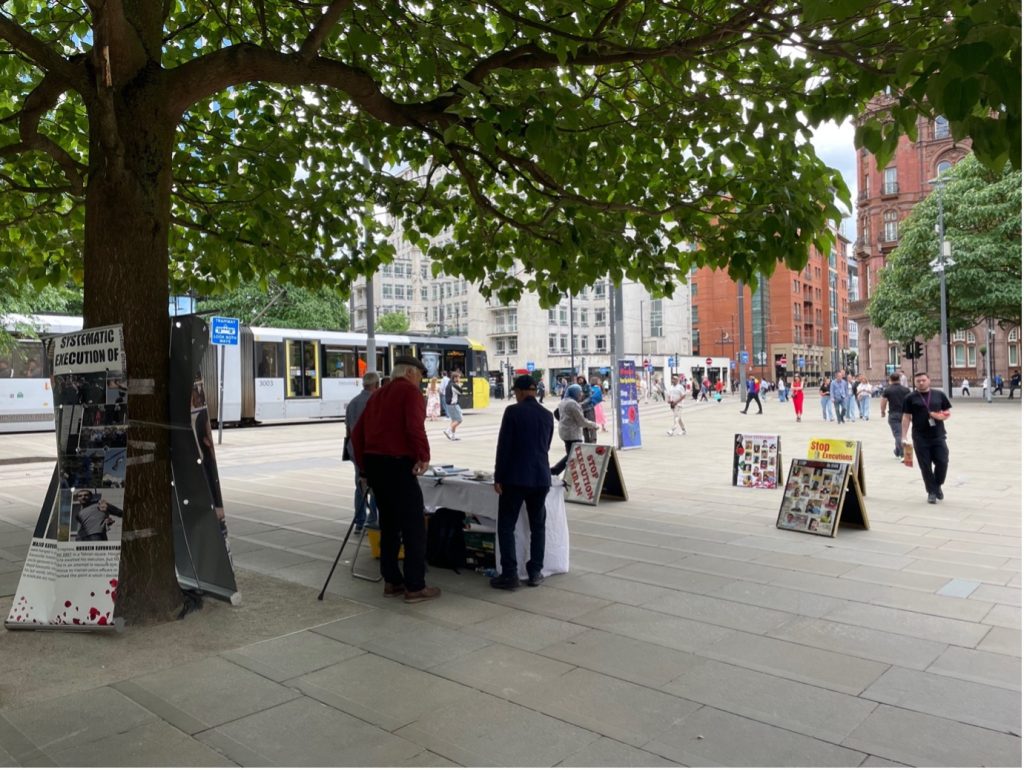
He claimed the group’s former status as a terrorist organisation in the UK was due to efforts by Western governments to appease the Iranian regime.
When asked about allegations of attacks, Reza denied any wrongdoing. “The group has never committed acts of terror,” he said.
The MEK was proscribed as a terrorist organisation in the UK in 2001 but was removed from the list in 2008 after a successful legal challenge.
Tufyal Choudhury, a counter-terrorism expert at Durham University, said: “Groups that are proscribed as terrorist organisations can appeal through a body called POAC. It’s very rare for such appeals to succeed.”
“The MEK and the Sikh Youth Federation are the only two I can think of. The MEK case was unusual because it was brought by a group of MPs and members of the House of Lords who wanted the group de-proscribed.”
A 2005 Human Rights Watch report included claims from former MEK members who said they were detained and beaten in the group’s camps.
In 2024, Le Monde reported allegations from former child soldiers who said they were recruited and trained by the group as teenagers.
The MEK denies the allegations and now presents itself as a peaceful opposition movement. Its current headquarters are in Albania.
